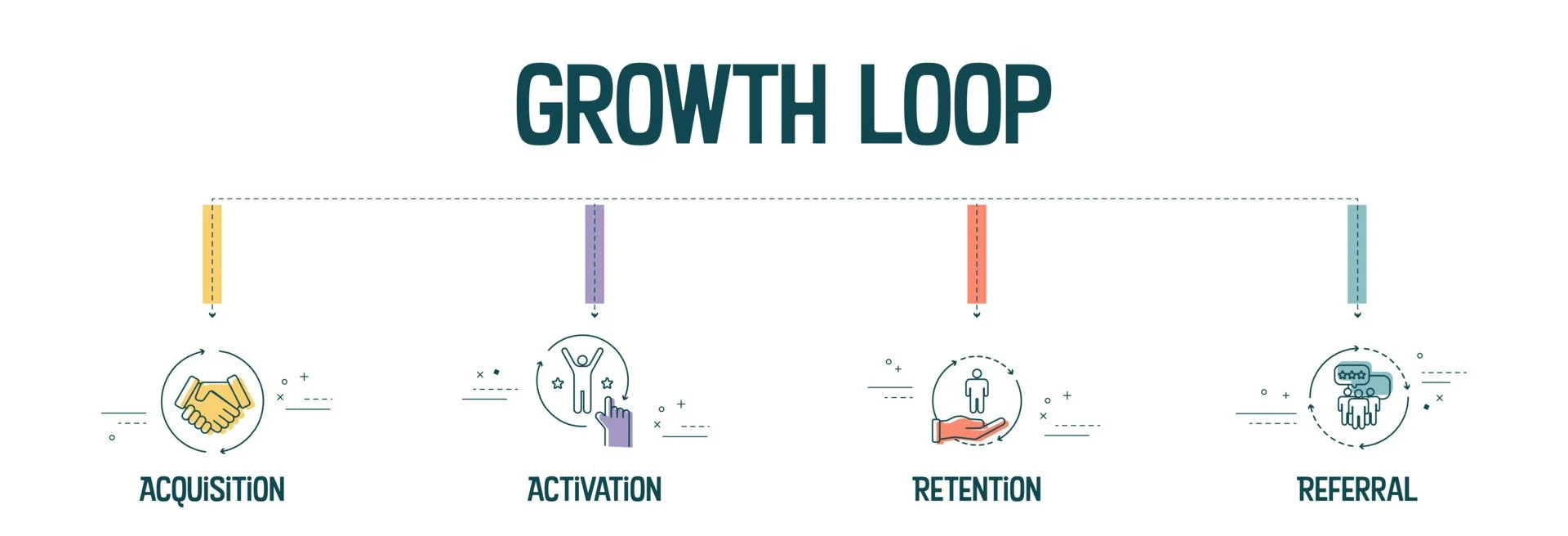Content Marketing: What It Is, How It Works, and Why You Need It
The digital age is here and never before has content marketing been more important to the success of businesses of all sizes. With the explosion of the Internet and social media, consumers have more access to information than ever before, making it critical for businesses to have a robust online presence.
But what actually is content marketing and how can companies create an effective content marketing strategy that will deliver remunerative returns and drive growth? Below, we explain the what, the why, and the how of content marketing so you can create positive and lasting growth for your business.
Content Marketing Definition | What Content Marketing Is
In its simplest form, content marketing is a strategic marketing approach where a business creates and shares content that is both relevant to the brand and useful, engaging, and valuable to its users. While much of this content may not be directly selling a product or service, the ultimate goal of content marketing is profitable customer action - or sales.
Types of content can include:
social media posts
videos
blog posts
newsletters
emails
podcasts
and, more
By leveraging compelling content that is relevant to existing and potential customers alike, companies can drive traffic to various landing pages, attract a clearly defined audience, and maximize SEO strategy.
Content marketing is not just a trendy buzzword. In addition to the above, many companies cite increased brand awareness, conversions, and leads as the top three benefits of a robust content marketing strategy.
Content Marketing Builds Brand Awareness and Engagement
The key to success in any business today is to establish yourself as a thought leader in your industry. Consumers have access to more information than ever before, and they're looking for brands that can help them make informed decisions.
By sharing interesting and relevant content, companies can increase brand awareness and establish themselves as those thought leaders. Over time, you build trust and credibility in the eyes of consumers who are then more likely to seek your company out when making purchasing decisions.
What's more, creating multiple opportunities for consumers to interact with your content allows for deeper engagement. A whopping 72 percent of content marketers agree that content marketing increases customer engagement resulting in higher conversions and increased trust.
Content Marketing Drives Conversions
Content marketing is the ideal way to reach your audience because it's personal, authentic, and engaging. It also works. According to a study by Content Marketing Institute, content marketing drives 6 times the conversions of any other marketing channel.
And when a multichannel marketing strategy is utilized, companies can win big. Research shows that companies that use display, social media, mobile, and video content marketing can see a 500 percent increase in return on investment (ROI).
Sure, content marketing efforts can feel tedious and even crazy-making but it's hard to argue with healthier returns and improved conversions.
Content Marketing Generates Leads
Another fantastic reason to develop a content marketing campaign is its unique ability to increase website visitors, generate more leads, and develop online visibility.
In fact, businesses with blogs report 67 percent more leads than competitors without blogs. Inbound marketing allows you to build relationships with potential users, which can help you attract new customers. Plus, digital marketing empowers the unique ability of your content to grow website visitors and online visibility means that when coupled with SEO, your ability to generate leads within your target audience and attract new customers increases.
Types of Content Marketing
There are many different types of content marketing, but they all have one thing in common: the power to lift sales, increase awareness, and develop authority.
Read on to understand the top three types of content marketing.
Social Media Marketing
Social media content marketing is the process of creating and sharing valuable and engaging content on social media platforms to attract and retain a target audience, usually on Facebook, Twitter, Instagram, LinkedIn, and more recently, TikTok.
In one of the best examples of a successful social media campaign, Wendy's, the global fast-food chain, dominated Twitter with their tongue-in-cheek roasts of fast-food competitors, immediately connecting and engaging with users.
They then provided links to their website where consumers, swayed by the plucky charm of Wendy's Twitter feed, could place orders via Door Dash. Wendy's has since surpassed Burger King to secure the third-highest share of the $247 billion fast food industry in the United States.
Video Content Marketing
Another way to raise your digital presence is video content marketing, which allows consumers to interact with your brand in an immediate and immersive way through visual content. Video content marketing can take many different forms, including product demos, how-to videos, customer testimonials, brand storytelling, and more.
Such online content marketing can prove profitable to businesses looking for a way to connect with their customers on a personal level. Since videos are more memorable than written content alone and allow you to speak directly to the viewer's emotions and senses (rather than just their intellect), they have been shown to increase engagement levels across all demographics.
On YouTube, GoPro shares user-created videos that demonstrate both the quality of their brand and how people use their products. In 2013, GoPro edited firefighter Cory Kalanick's GoPro footage of him rescuing and resuscitating a kitten. The resulting video content was shared widely on social media and drove traffic to GoPro's website- racking up over 45 million views on YouTube.
Blog Content Marketing
Blogs are perhaps the most widely recognized form of content marketing, providing you with a great way to connect with your target audience and share information about your business and offerings.
Blog posts can provide companies with more benefits than traditional advertising. As your business blog is operated and blog posts are posted directly on your website, blogging can increase your company's online visibility and expand your reach resulting in higher conversion rates.
In fact, brands that employ content marketing have conversion rates that are nearly 6 times higher than competitors not employing content marketing while also costing 62 percent less than outbound marketing.
Content Marketing and Search Engine Optimization (SEO)
Content marketing and Search Engine Optimization (SEO) go hand in hand. If content is king then search engines, which crawl the Internet to deliver relevant results to the user, is its loyal knight, and SEO - its sword of might.
SEO is the process by which companies maximize their visibility in search engines so that when users search for a particular product or service, their site appears at the top of the results page. All content should be optimized for search engines to be easily found by the user. The more content you have, and the better it is optimized for search engines, the higher your site will rank in search engine results pages (SERPs).
To the uninitiated, SEO can seem daunting. That's why it's important to work with content marketers experienced and knowledgeable with SEO. An experienced content marketer will know how to optimize your content for search engines and make it easier to find. They'll understand that SEO is not just about keywords and links, but also about creating useful, engaging content that your target audience will want to read.
How Content Marketing Works: Understanding the Buyer's Journey
Sure, we know that content marketing is a strategic marketing approach that involves the creation of highly valuable, relevant, and consistent content to attract, retain, and convert a target audience - but how does it really work?
There are many components of a successful content marketing strategy, and it always helps to have an expert at hand to help develop and execute that strategy. And all experts will agree, understanding the buyer's journey is a critical component of a successful content marketing strategy.
What Is the Buyer's Journey?
The buyer's journey is a psychological process that people go through when making a purchasing decision and can be modeled through three stages within a marketing funnel: awareness, consideration, and conversion.
The Awareness Stage
The awareness stage signifies the beginning of the buyer's journey and marks the moment the buyer becomes aware of their problem.
The buyer takes to the Internet to find a solution for their problem and if the content marketing was done right, they will be introduced to the brand without specifically seeking it out.
By establishing a connection with potential customers early on in the buyer's journey, businesses build trust and position themselves as reputable sources of knowledge thereby increasing the likelihood of conversion in the later stages of the buyer's journey.
The Consideration Stage
In the awareness stage, the buyer identified their need or problem, began to research potential solutions, and became aware of companies offering solutions. In the second stage, the consideration stage, the buyer will evaluate the different options to determine what solution might best fit their needs.
It is during this stage that businesses need to create content that helps distinguish their products or services from competitors. Therefore, the content should be focused on the benefits and features of the products or services and offer valuable information to help the buyer make an informed decision. Content marketing examples within this stage can include case studies, whitepapers, webinars, product demos, and competitor comparison.
The Conversion Stage
The conversion stage is at the bottom of the funnel and where the magic happens. At this stage, the buyer has made a decision about the business they would like to buy from and is ready to take action. In the conversion stage, content marketing helps convert possible customers into paying ones.
In this stage, it is incredibly important for businesses to create content that provides a clear and easy path for buyers to take the desired action. Content marketing examples in the conversion stage can be including easily navigable copy on landing pages that provide valuable information to prevent the buyer from seeking this information elsewhere.
An important note about the conversion stage: Despite being the end of the content marketing funnel, it is far from the end of the buyer's journey. Businesses should continue to nurture customers and provide ongoing content to encourage repeat purchases, customer retention, and advocacy.
How to Develop Your Own Content Marketing Strategy
A viable content marketing strategy requires a strategic marketing approach, focused on delivering real value to your audience. It’s not enough to simply post something on social media platforms or quickly publish a blog post; you need to provide value and create an experience that your audience can engage with and learn from.
Understanding the customer's journey in addition to the multiple touchpoints along the way will inform the content you create and tactics you use to reach your customers. Additionally, developing a clear understanding of your target audience by analyzing demographics to create user personas will help ensure that you are creating relevant content that resonates with your audience.
Once you understand your audience, the next step is to create content that caters directly to their needs and implements SEO. This will help ensure that your marketing efforts are not only successful but also useful for your customers. Additionally, SEO will allow your company to expand its reach and develop a wider audience of possible customers.
Finally, it's important to remember to measure the success of your content marketing strategy. You can do this by tracking key metrics such as website traffic, engagement rates, and conversion rates. By regularly analyzing these metrics, you can identify areas for improvement and adjust your content marketing strategies accordingly to ultimately drive growth.
BitterRoot Content Can Help You Create Content That Converts
Looking to tap into the power of content marketing but not sure where to start or how to develop a content marketing strategy that works? BitterRoot Content can help.
At BitterRoot Content, we understand that content marketing success requires ongoing effort, edits, and optimization. That's why we regularly track and analyze key metrics to identify areas for improvement and adjust our strategies accordingly. Our team of experienced content marketing professionals can work with you to develop a customized content marketing strategy that aligns with your business goals and helps you reach your target audience. Take your business to the next level by contacting us for a complimentary content consultation today.














